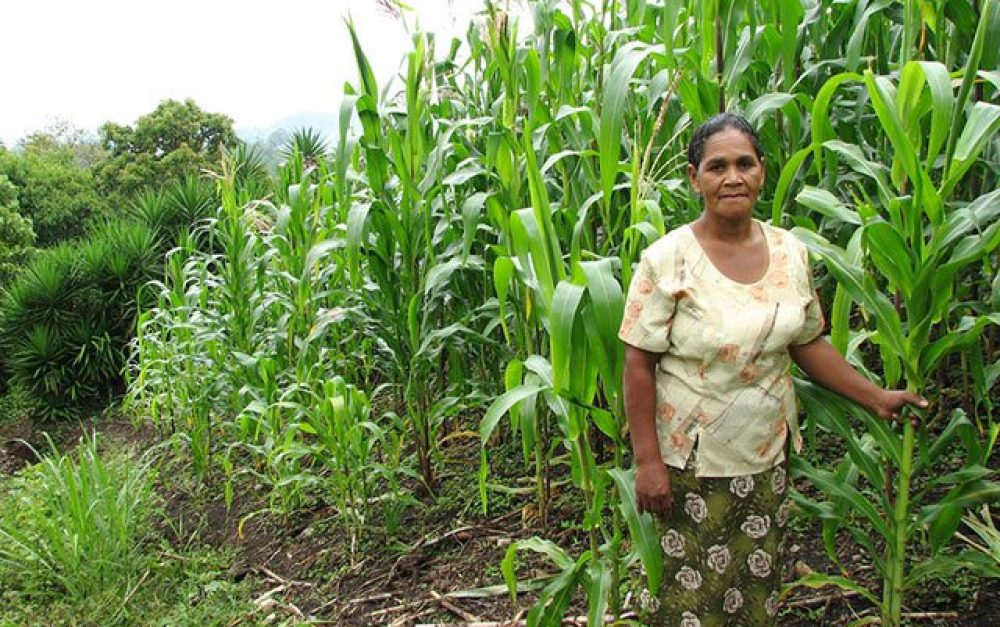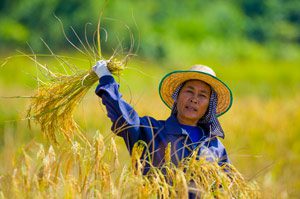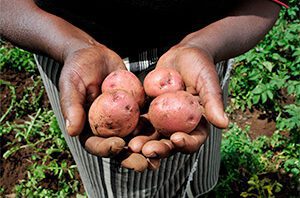Today is World Food Day and around the world communities are taking a stand against hunger. But the solutions put forward differ dramatically depending on what one understands the “food problem” to be. For many, every day is World Food Day and presents both the necessity and opportunity to fight for farm and food justice; for them it is a matter of integrity and survival. Theirs (and ours) is a fight for food sovereignty, tackling the problems of hunger and our inequitable, imbalanced food system at their source.
For others, the Monsantos of the world, this day marks an opportunity to further push false, pesticide-dependent solutions to real problems. But democratizing our food system is the most powerful way I know to solve the underlying problems that World Food Day highlights — and people around the world are coming together to make it happen.
Cross-continental collaboration
In Seattle last week, I had the great privilege of joining 30 farmers and food sovereignty leaders from across the U.S. and Africa in exploring how best to strengthen cross-continental efforts to democratize our food systems.
For five days, we shared our respective approaches to restoring local control over land, water and seeds; challenging the global institutions that create spaces for multinational corporations to secure profits at farmers’ expense; promoting agroecology rather than industrial corporate agriculture; and connecting family farmer, farmworker, women, youth and urban movements for food justice. Rolling up our sleeves on the last day, we laid the groundwork for future U.S./Africa collaboration.
Women are the guardians of the seed, the land, lives and love. —Mercia Andrews, Rural Women’s Assembly, Southern Africa
A highlight for me was the public town hall Sunday night, at which our African colleagues — from Ethiopia, Zimbabwe, Nigeria, South Africa, Uganda and Kenya — shared their stories. These stories highlighted three key areas of focus:
- Organizing, including work being done by the Alliance for Food Sovereignty in Africa and the 200 million farmers of La Via Campesina;
- Outrage at the Gates Foundation for funding the “Alliance for a Green Revolution in Africa”; and
- Inspiration — 50,000 Ethiopian farmers practicing agroecological rice farming, Zimbabwean farmers growing bountiful crops of organic produce, and South African women building farmer-to-farmer networks.
All of the stories were powerful and highlighted the power of collective action.
Celebrating the food sovereignty movement
Several of our partners flew from Seattle on to Iowa, where — last night in a joyful and moving ceremony — the U.S. Food Sovereignty Alliance (of which PANNA is a founding member) awarded its 2014 Food Sovereignty Prize to two organizations: Community to Community Development (C2C)/De Comunidad a Comunidad of Bellingham, WA, and the Union of Agricultural Work Committees (UAWC) of Palestine.
As the U.S. Food Sovereignty Alliance explains,
“Their stories of continuous struggle to defend the rights of their communities — farmers and fishers in the occupied Palestinian territories and migrant Mexican farm workers in Washington State, both seeking to produce their own food, on their own land, in their home communities – stand in stark contrast to the storylines coming from agribusiness: that technological changes to crops can meet human needs and resolve hunger.”
I have long admired the integrity, passion and true grit of C2C, so I was overjoyed to see Rosalinda Guillen, C2C’s Executive Director, and Patricio Santiago accept the Prize last night.
Equally inspiring was Ali Abd El-Rahman of UAWC describing his Union’s work building farmers’ cooperatives and seed banks and supporting women’s leadership — while continuing to advocate for its members’ basic rights to food, land and water.
… and then there’s the World Food Prize
Meanwhile, taking a very different approach, today in Iowa a slew of dignitaries and CEOs of pesticide companies like Monsanto, Syngenta and Bayer are gathering for the 27th annual World Food Prize.
This prize is typically awarded to a biophysical scientist associated with “Green Revolution” technologies. These are designed to increase crop yields when enough external inputs (hybrid seeds, chemical pesticides and fertilizers, irrigated water systems) are supplied, although their actual success is under serious debate.
My colleague, M. Jahi Chappell at the Institute for Agriculture and Trade Policy, does a brilliant job of unpacking how and why the World Food Prize’s production-oriented focus on Green Revolution technologies — and its blindness to the social and political dimensions of hunger — undermines its stated goal of reducing hunger.
The U.S. Food Sovereignty Alliance’s distinction is even more succinct and straightforward:
While the World Food Prize emphasizes increased production through technology, the Food Sovereignty Prize champions solutions coming from those most impacted by the injustices of the global food system. In honoring those who are taking back their food systems, the Food Sovereignty Prize affirms that nothing short of the true democratization of our food system will enable us to end hunger once and for all.
Hear, hear.








